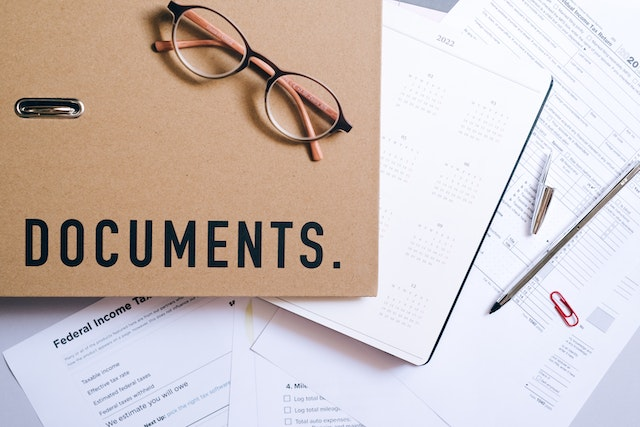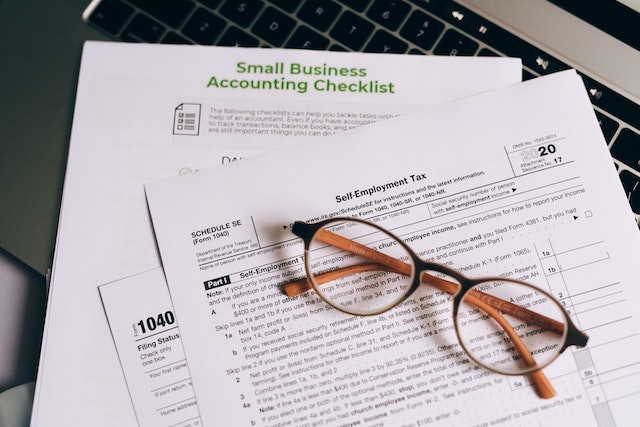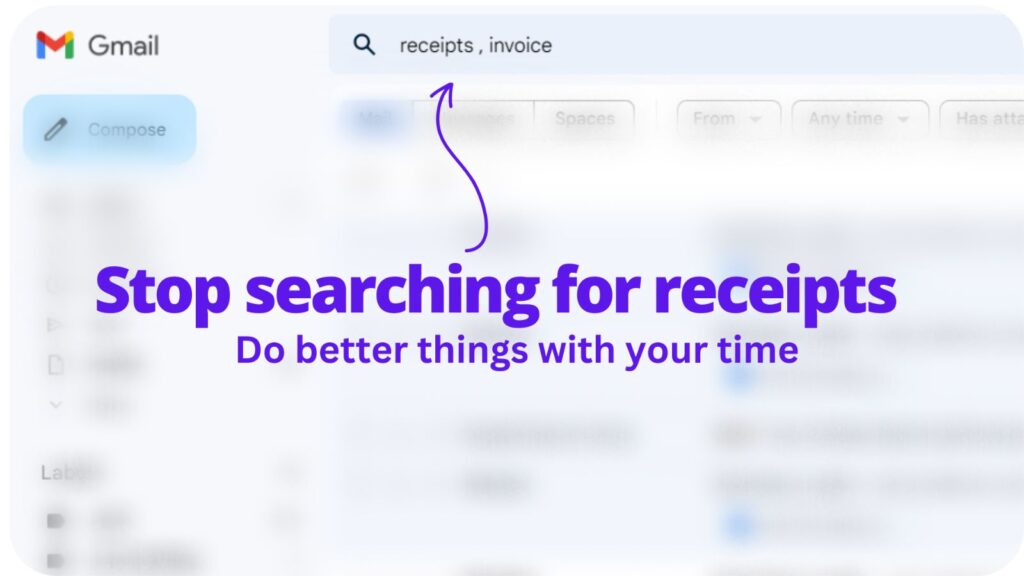Running a small business comes with numerous responsibilities. Managing taxes is one of the most challenging. It’s not just about paying your assessment on time. Understanding what you owe and why is. Tax laws are complex and can be a minefield for the unprepared.
However, when handled correctly, they can present opportunities for tax savings that can significantly impact your bottom line.
This guide presents the ultimate tax checklist for all small businesses, designed to help you navigate through the taxation process, avoid common pitfalls, and make the most of potential tax benefits.
Understanding the Importance of a Tax Checklist
Why Your Small Business Needs a Tax Checklist
Most small business owners know the tax season can be tricky. You have to fill out specific tax forms. Plus, you have to understand business tax forms and more. A tax checklist helps you stay organized. You can avoid making mistakes on your business tax return.
Furthermore, it helps you make sure you’re not missing any tax credits. Tax credits can lower the money you owe in taxes. So, you want to claim all the ones you can. They can help you lower your tax burden. Above all, a tax checklist can save you time and stress. It makes tax season a lot simpler.
Consequences of Not Having a Proper Tax Checklist
Without a good tax checklist, things can get complicated. For instance, you might forget to deduct estimated tax payments. If this happens, you will pay more taxes than you should.
Or, you could miss a tax deadline. If you miss it, you might have to pay penalties. After all, the government is strict about these deadlines. Also, it’s easy to lose track of business expenses. These costs lower your taxable income.
For instance, if you’re unsure of which expenses qualify, diving deeper into tax receipt categories can help you sort out your finances. And understanding tax receipts is crucial in ensuring that you’re correctly categorizing and claiming every possible deduction.
If you’re looking for tools to help with this, consider using recommended apps for tax receipts. These apps provide a user-friendly interface to streamline the process of organizing and categorizing your tax receipts.
Moreover, a tax checklist helps you remember to file taxes for your employees. All business entities have to do this. That includes sole proprietors. Lastly, not having a tax checklist could mean you have to file a tax filing extension. This can delay your tax return and add extra stress to your tax season.
Creating Your Comprehensive Tax Checklist

Key Components of a Small Business Tax Checklist
Firstly, your checklist should have a list of all tax forms you need. This can include forms for filing taxes and forms for estimated tax payments. It’s crucial to have these forms. It’s how you tell the government about your business income and expenses.
Secondly, you need to list your business expenses. These are costs that help your business operate. Ordinary and necessary costs, like office expenses, are examples. These costs can lower your tax liability. So, you don’t want to forget them.
Understanding business expense categories can help you ensure that every possible deduction is accounted for, enhancing the accuracy of your tax filings.
Also, add things like business insurance premiums and health insurance premiums. These are also business expenses. Moreover, your tax checklist should have a spot for your tax payments. This can help you keep track of your estimated taxes and self-employment taxes.
How to Personalize Your Tax Checklist
Each business is unique. Therefore, each business tax preparation checklist should be too. It depends on how your business operates and your business structure. For instance, C corporations and sole proprietorships have different tax responsibilities. So, they need different checklists.
Take a look at your business expenses. Add any specific costs you have. For example, do you pay excise taxes? Do you offer employee benefits? If so, add these to your list.
Your personal income tax return may also impact your business tax return. So, make a note of any personal items that could affect your business taxes.
Above all, remember to include due dates. Each tax form has a deadline. Missing these can lead to penalties. Including due dates in your checklist can help you avoid this. And, it can help you plan for tax season.
Lastly, don’t forget to add a spot for your tax preparer. If you work with a tax professional, add their contact info.
Important Inclusions in the Tax Checklist
Identifying Essential Tax Deductions
Firstly, tax deductions are important. They can lower your taxable income. So, they can reduce the income taxes you have to pay. Small business tax deductions can be big or small. But all of them matter.
For example, the accounting software you use for your business is a business expense. It’s also a tax deduction. The same goes for professional fees you pay, like fees for a tax preparer. But, remember to keep all your receipts. You need them for your tax return.
Are you a sole proprietor? Do you work from home? If so, you might qualify for the home office deduction. This can be a big help for your small business taxes.
Also, if you have a business loan, don’t forget about it. The interest you pay on it can be a tax deduction too. So, add all these deductions to your tax checklist.
Understanding Tax Credits for Small Businesses
Secondly, tax credits are different from tax deductions. A tax credit reduces your taxes directly. It’s like a gift card for your tax bill. So, knowing about any tax credits your small business can get is important.
For example, you might get a tax credit if you offer employee benefits. This can reduce your employment taxes. The same goes if you have to pay excise taxes or sales tax returns. In some cases, you might get a tax credit for them.
Also, if your business structure is a C corporation, you might get specific tax credits. The rules can be complicated. So, it might be a good idea to talk to a tax professional about this matter. They can help you understand which tax credits you can get.
Using Your Tax Checklist for Quarterly Taxes
One of the main uses of a tax checklist is to help with quarterly taxes. But, what are quarterly taxes? They are estimated taxes that a business owner pays four times a year. This is very important for small business owners.
Calculating Quarterly Taxes: A Step-by-Step Guide
So, how do you calculate quarterly taxes? It can seem scary, but it’s not too hard if you follow these steps. Firstly, you need your business records from last year. This includes things like your income taxes and business taxes.
You also need your credit card statements and bank account records. All these documents can help you guess how much you’ll earn this year.
Secondly, use accounting software or a tax preparer to estimate your taxes. You want to estimate your federal income tax return. But also your Medicare taxes, if you’re a sole proprietor.
The software or tax preparer can use your business entity information to do this. So, be sure to give them your business structure details. This includes if you’re a C corporation or a sole proprietorship.
Thirdly, divide your estimated taxes by four. This is because you pay quarterly taxes four times a year. So, each payment is a quarter of your total estimated taxes.
Fourthly, mark your tax appointments in your calendar. The dates are usually April 15, June 15, September 15, and January 15 of the next year. You don’t want to miss these dates. Missing them can lead to a penalty.
Lastly, when it’s time, pay your quarterly taxes. You can usually do this online. Just make sure to keep a record of your payment. You’ll need it for your tax return.
Maintaining and Updating Your Tax Checklist

Keeping your tax checklist up to date is key to easy tax preparation. It’s like tidying your room. If you do it often, it stays clean. The same goes for your small business tax checklist. Regular updates can save you time and stress.
The Role of Tax Laws in Updating Your Checklist
Firstly, let’s talk about tax laws. They can change every year. For example, the government might add new tax deductions. Or, they might remove old ones. So, you must check for these changes.
Your checklist must include the latest information. That way, you won’t miss any tax benefits. This applies to all small business owners, even sole proprietors.
Secondly, make a plan. At the start of each year, review tax documents and tax laws. Then, update your business tax preparation checklist accordingly. Also, consider using accounting software. It can help you keep track of changes.
Thirdly, keep your financial records in order. This includes things like credit card statements and equity account statements. Make sure to store them safely. You might need them for your tax return. Plus, they can help you with your tax preparation.
Fourthly, understand your employment taxes. If you’re an employer, you pay taxes for your employees. This can include things like Medicare. So, make sure to include these in your checklist.
Leveraging Technology for Your Tax Checklist

Best Tax Software for Small Businesses
Firstly, let’s talk about tax software. It’s like a toolbox for your taxes. Above all, it helps make tax preparation easier. For example, accounting software can organize your accounting records. That means less stress for you.
There are many good options out there. However, your small business needs might be unique. So, the best tax software will depend on your needs.
Are you a small business owner with many employees? Then you might need software that handles employer pays taxes. Or maybe you’re a sole proprietor. In that case, software that helps with personal tax return might be best.
How to Choose the Right Tax Software
So, how do you pick the right tax software? Well, start by looking at your tax preparation checklist. That’s your guide. It tells you what you need.
Then, think about your small business. Are you a C corporation? Or, maybe you have a personal vehicle used for business. Each situation calls for different software. So, choose one that fits your needs.
Lastly, think about the cost. Tax software is often tax deductible. That’s a bonus. But, it’s also an investment. So, choose wisely. The right software can save you time and money. After all, it’s an important tool in your small business tax prep toolbox.
Seeking Professional Help for Your Tax Checklist

When to Consider Hiring a Tax Professional
Firstly, when should you think about hiring a tax professional? Well, if your tax preparation checklist is very long, it might be a good time. A tax pro can help with that. They know a lot about taxes.
Are you a small business owner? Then you might have a lot to do. If taxes are too much to handle, consider getting help. Likewise, if you’re a C corporation, you might have complex tax needs. A tax pro can help with that too.
Lastly, if you’re a sole proprietor, taxes might seem simple. But, they can be tricky. A tax pro can guide you. After all, it’s their job to understand taxes.
How a Tax Professional Can Enhance Your Tax Strategy
A tax pro doesn’t just help with your taxes. They can also improve your tax strategy. In other words, they can help you pay less taxes. That’s a good thing for any small business.
How does it work? Firstly, they look at your small business tax preparation. They check if you’re doing things right. Then, they suggest changes. These changes can make your small business tax prep more efficient.
Secondly, a tax pro can teach you about taxes. They can explain difficult things in a simple way. That way, you can understand your taxes better. And, you can make better decisions for your small business.
Frequently Asked Questions
Do tax checklists work for every kind of business?
Whether you’re the captain of your own small business or a team player in a large company, a tax checklist can be your best friend. The stuff you put on your list might change a bit depending on what kind of business you’re in, but the main idea stays the same. It’s like your cool, handy guide, making sure you’ve got all your tax jobs sorted.
I’m not too confident about making a tax checklist. Who can I ask for help?
Don’t worry if making a tax checklist seems overwhelming. You can always get help from a tax pro or accountant. They’re like a lighthouse guiding your way, ensuring you don’t miss any important tax details. Plus, the internet is full of helpful resources and tax software that provide templates and support.
Can a tax checklist replace my accountant?
While a tax checklist is a great tool to keep your tax tasks organized, it can’t take the place of an accountant. Accountants are like your tax superheroes. They can offer personalized advice, make sure you’re saving as much as possible on deductions, and assist with complicated tax stuff.
What if I goof up on my tax checklist?
Everyone slips up now and then, and that includes mistakes on a tax checklist. If you find a mistake after you’ve filed your taxes, don’t panic. Usually, you can fix it by filing an amended tax return.
Wrapping Up
Having a tax checklist can smooth out your tax prep process, making sure you’re on top of everything and not missing deadlines. It’s not a replacement for a tax professional, but it can make your chats with them more efficient.
Remember, we all mess up sometimes, but with careful attention and expert advice when needed, you can handle your small business taxes like a pro.

Collect receipts from your email automatically!
Try WellyBox - your AI assistant for receipts😃
Start for Free
